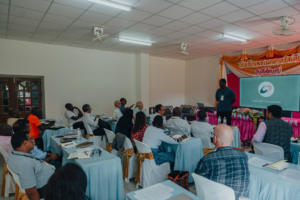by Mission ONE
The church today looks a lot different than it did even over the last 50 years or so. Like anything else, as time passes, things shift and change. Forces affect how we think about certain things around us, and the church is not exempt from this.
Popular culture is ever changing and always competing for our allegiance. But even though our world may change, the word of God does not. So, when faced with popular ideas regarding scripture, how can we prepare ourselves to read and interpret the Bible in truth? Let’s consider a few factors that influence the relationship between Greek Philosophy and Christianity. Doing so can help us better discern biblical truth.
A Look At Greek Philosophy And Christianity
The ancient Greek philosophers Plato and Aristotle have heavily influenced Christian theology. Generally speaking, Plato divided everything into realms––the concrete and the abstract. He said that this world was but a mirror reflection of an ideal world of perfect “forms” or “ideals.”
His student Aristotle, by contrast, prioritized the world of the senses. What we see, smell, touch, and hear constitute what is most real. And even though their ideas were different, the history of theology, in many ways, merely chronicles their impact on Christians’ thinking.
Why It Matters
For many people, Plato’s philosophy almost gradually pushes us toward a dualism that morphs the church’s thinking and practices by speaking of a material world and of a separate ideal world.
When the church adopted this dualism, we began interpreting Scripture in harmful ways. Christians started to hyper-focus on questions concerning the spirit and the body. People began to feel that the physical body and the material world were inherently flawed and should be discarded.
This platonic-Christian synthesis tells people to only hope for heaven—which they see as a disembodied, ethereal, spiritual realm—because eventually, this material world will be gone.
Unfortunately, this way of thinking ignores the here and now and focuses only on what’s to come, disregarding the importance of our lives today all around the world.
In turn, Aristotle’s influence on the church can also go unnoticed. People who follow his ideas focus so intently on the problems and needs of the world that they forget God’s plan for the cosmos that transcends all history. They can become so aware of social evils that they ignore or minimize the power of sin in the human heart and God’s plan for redemption—the reconciliation with our heavenly Father who longs to adopt us as his children.
Learning more about these philosophical perspectives and their influence on our Christian theology can help us live more like the Kingdom of God here on earth and have an impact for eternity.
Changing Mindsets Here And Now
For many Christians today, it’s only about evangelism—the kind of evangelism that preaches a message that will get people saved from this evil material world into some place called heaven where people live forever as disembodied spirits. But, this reduction of the church’s mission turns Christianity into a transaction where Christians seem cold and unconcerned about the plight of many in our world. Those who follow his idea can become less interested in taking part in social ministries because “it won’t matter in the end.” In reality, this platonic influence diminishes God’s mission for His people. It is the fact that we are called to love our neighbor as ourselves.
Mission ONE has a robust vision of God’s salvation. We envision a world where every community is transformed for the glory of God and the honor of all peoples.
With the right support and resources, we are able to bring aid to those who need it around the world. We become His hands to alleviate suffering. But more than this, our hope is in God’s Spirit to mobilize God’s people to do God’s work here and now.
More Like a Kingdom Vision
We have seen the power of this robust vision time and time again, like with the Chepang people in Nepal. Where in the midst of tragedy, we saw the community rise up, stand firm to do God’s work, and overcome adversity.
In Nepal, goats are in high demand for their meat, so selling just one goat at the market can provide a few months of income for a family.

Pumaya, a woman who had become widowed, received two goats in what she felt like was a new beginning. She now has the means to provide for herself after her husband’s passing. She is committed fully to care for these goats and to participate in the village farm to raise and multiply these goats for market.
This type of dignified work brought meaning to her life, allowing Pumaya to feel like she was participating in a larger effort to lift her village out of poverty. Most importantly, she is experiencing the love of Christ through the believers in her midst, feeling a strong sense of renewed hope for the future
Our bodies, minds, and hearts matter. Theology manifests itself in actions—we follow Jesus and teach God’s people about His love, we pray it may shine through acts of kindness, allowing them to discover how to use their God-given gifts for His glory.
The gospel proclaims that Jesus is King over the world. And so, we must take part in what is happening in our world. Taking the gospel into communities that need it most, transforming the Global Church and making communities more like the Kingdom of God.
Learn more about our work here.
Search the Blog
Free Resource

3 Ways to Honor God on Your Next Mission Trip
We're sharing three things you should consider before you organize or participate in an international mission trip, seek to do work in the multicultural neighborhood in your own city, or embark on any cross-cultural partnership.

